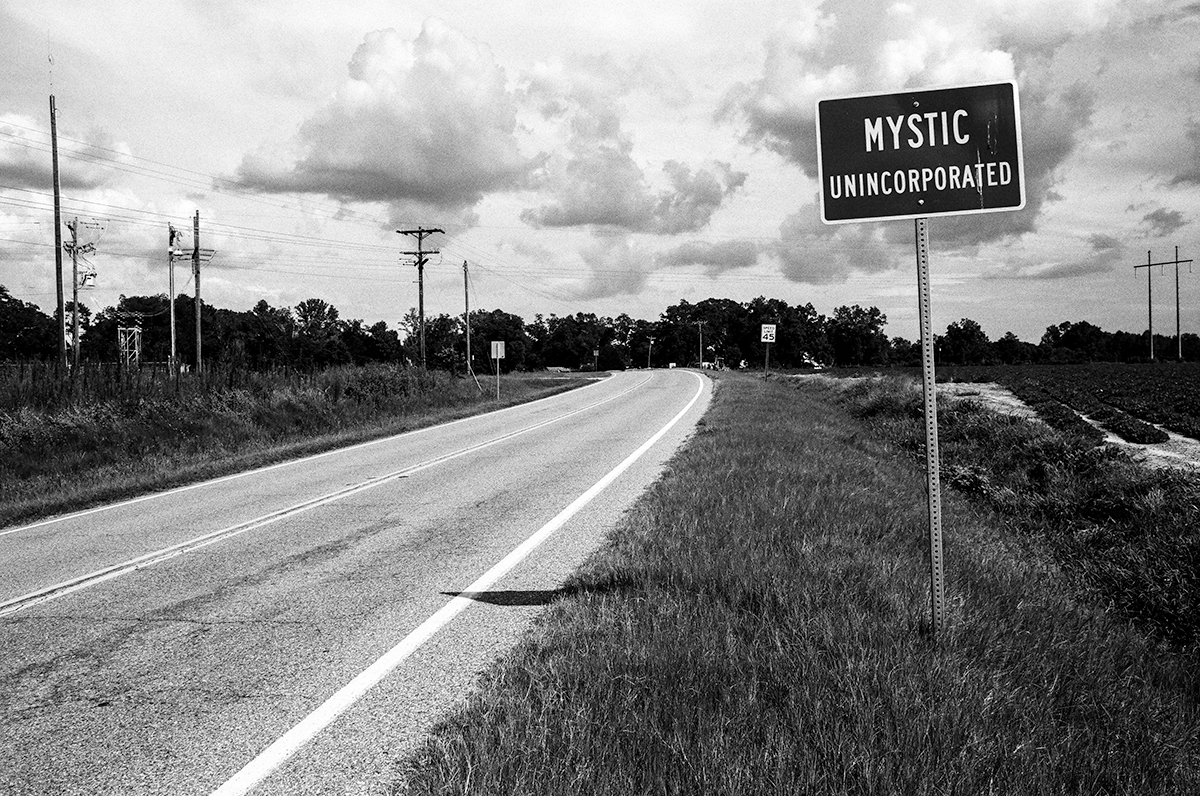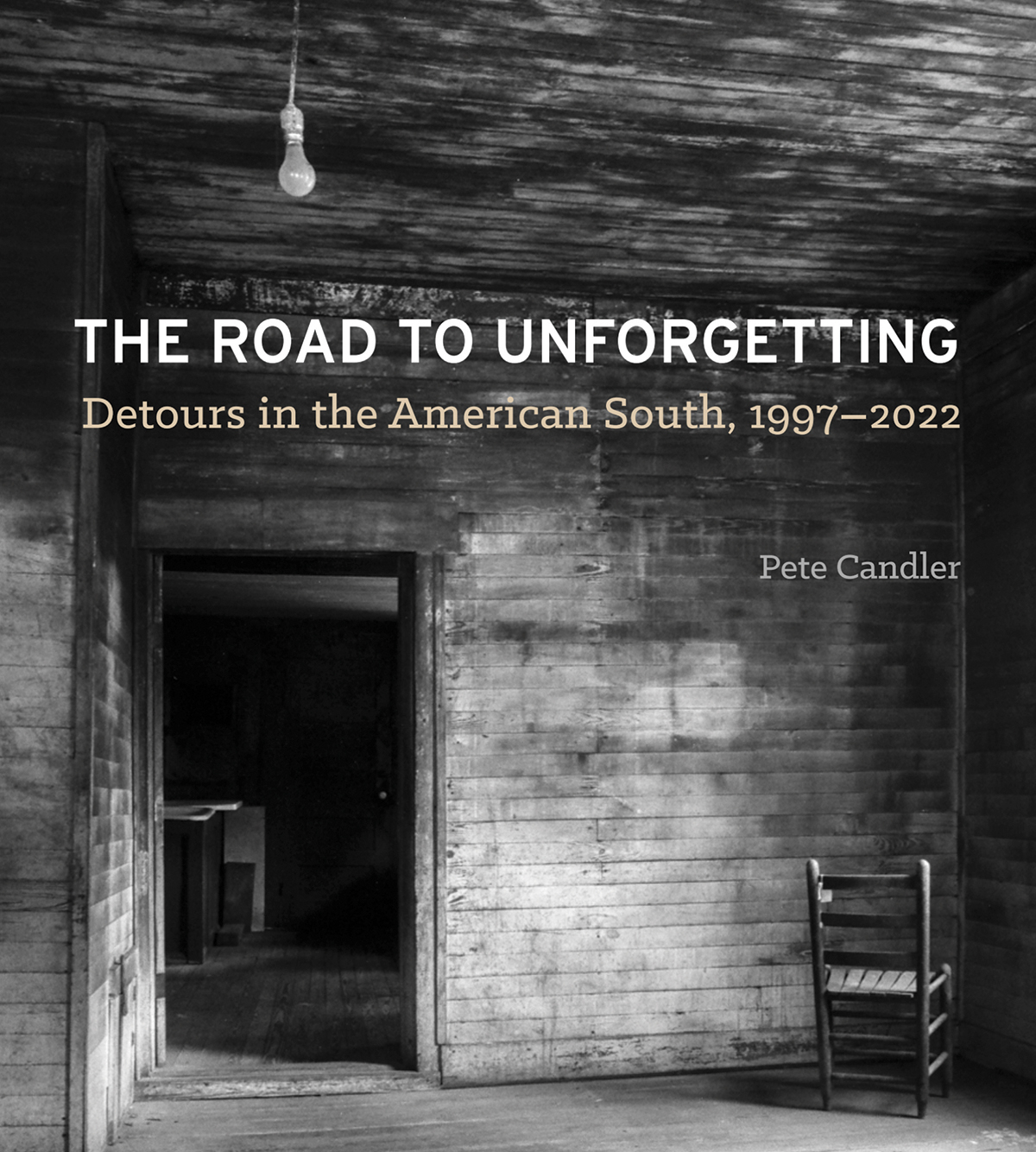
In a year of literary reckoning that brought us Maud Newton’s ripple-causing Ancestor Trouble, about the harsh social implications of family legacy, writer, photographer, and filmmaker Pete Candler of North Asheville — who’s written about Southern literature and history for Bitter Southerner, Los Angeles Review of Books, Commonweal, and other major publications — adds an important layer of imagery to the issue.
Released this month, Candler’s book The Road to Unforgetting: Detours in the American South, 1997-2022 (Horse & Buggy Press), is the culmination of his multimedia project A Deeper South. Along with Candler’s accompanying narratives, the book’s cinematic images, taken on a series of road trips through the Deep South between 1997 and 2022, address the concept of Southern amnesia — collective and personal — in the toxic perpetuation of white supremacy. Renowned photographer Sally Mann has praised Candler’s nuance in exploring a beloved region with a “troubled past and a complicated present.” Candler’s book launch on Nov. 10 happens at Citizen Vinyl.

You’ve described your road trips as a spiritual exercise. How so?
Traveling with a camera puts you in a position to receive some of the generosity of the universe, and all forms of art are, in some ways, attempts to help us see things we didn’t realize were there.
Like your ongoing mission to explore “Southern amnesia?”
In 2018, I bought a book about the history of lynching. The first page was about Sam Hose, a Black man who killed his landowner in 1899. They lynched him and brought a special train full of people down from Atlanta to watch. [They sold his body parts as souvenirs.] Page two was about my relative, who was the governor and blamed the atrocity on the Black folks. I found out you cannot tell the story of lynching in America without talking about my family, but I never knew any of that growing up. I realized I had inherited this Southern amnesia that makes up lies to romanticize white supremacy. Re-narrating my own personal history and looking at myself truthfully is what I’m after in this book.

Can you share an example of that, based on one of Unforgetting’s images?
I took a photograph of the Edmund Pettus Bridge, the one that Civil Rights marchers like John Lewis went across. At the time, it just caught my eye because of the “bridge closed” signs and barricades. Only later did I realize that Pettus was the Grand Wizard of the Ku Klux Klan. It was obvious to the marchers who retook that symbol of white supremacy, but not to me. That was very much part of this story, seeing what I wasn’t aware of the first time — and the history I was oblivious to.
There’s a quarter-century’s worth of personal revelations to ponder …
The best luck I have as a photographer is [with] images that have an impenetrable density that will continue to unpack itself over time, if you allow it. You can’t just visit the South — you can only revisit it, because it requires an unlearning and relearning. The art of photography makes some of that possible.
Pete Candler, North Asheville. The Road to Unforgetting: Detours in the American South, 1997-2022 (Horse & Buggy Press) is available through adeepersouth.com. Candler’s book launch happens Thursday, Nov. 10, 5:30pm at Citizen Vinyl (14 O’Henry Ave., Asheville, citizenvinyl.com). The author’s non-fiction narrative Prologue to the South (University of South Carolina) will be published in the fall of 2023. Follow Candler’s writing at adeepersouth.substack.com.